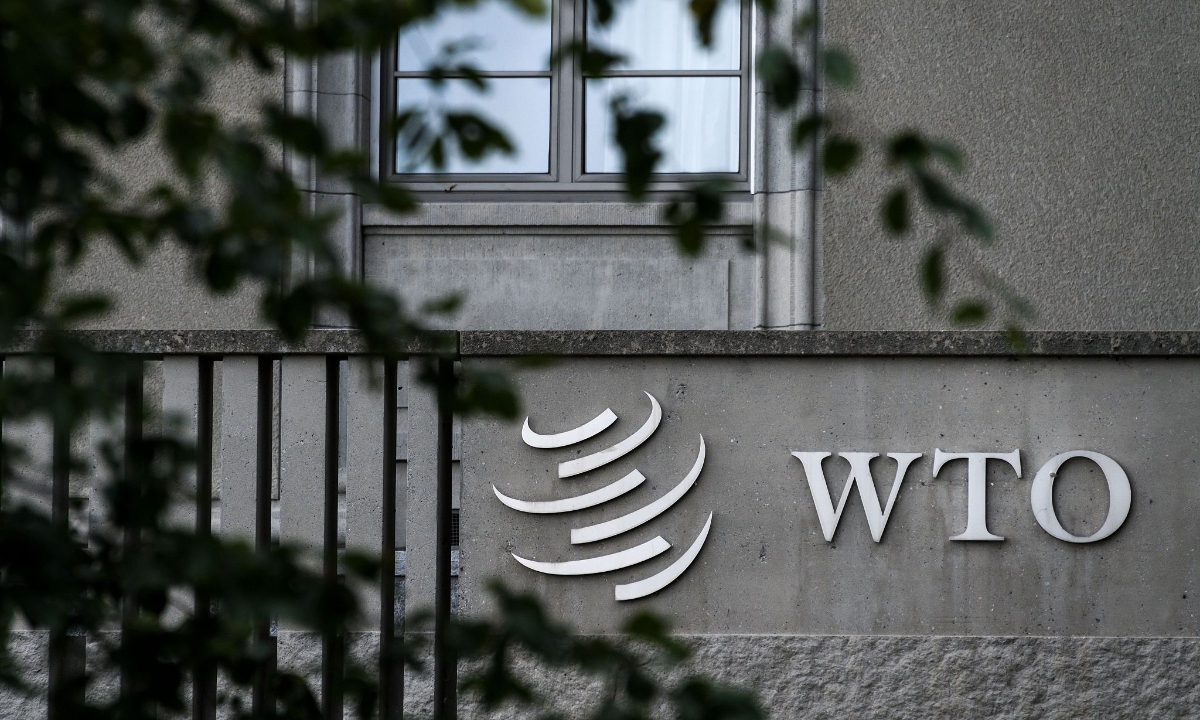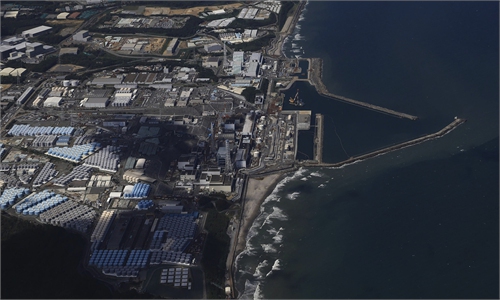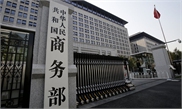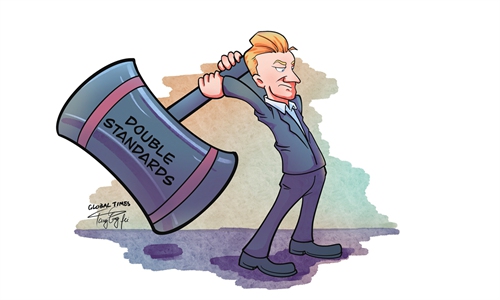
A sign of the WTO on its headquarters in Geneva Photo: VCG
Even the most optimistic observers have to acknowledge that as the WTO's 13th Ministerial Conference (MC13) draws closer, there is still no sign of any concrete breakthrough for the WTO reforms. The MC13 is scheduled to take place next week in Abu Dhabi, United Arab Emirates.The Reuters said on Wednesday in a report entitled "World Trade Organization's push for reform plagued by obstacles" that the WTO is held up on what to do with its "non-meetings." In a sign of wider divisions plaguing the trade body, delegates cannot even agree to "formalize" the talks that aim to revive the WTO's top appeals court known as the Appellate Body, which has been idle since 2019 due to US blockages of judge appointments.
While it is totally understandable that there are different views and demands related to the WTO reforms, it doesn't mean that the reform process should become another tool serving Western trade protectionism and anti-globalization and hindering the progress of the developing world.
The paralysis of the WTO Appellate Body is just one of the numerous challenges confronting the WTO. At present, WTO rules still underpin about 75 percent of trade. But the growing number of trade disputes and geopolitical tensions over trade issues mean that the WTO system needs to be expanded and renewed, especially in areas such as digital economy, climate change, investment and dispute resolution.
This is also part of the reform that is badly needed. Failure to do so could have consequences, exacerbating geopolitical and trade tensions in the world.
Against this backdrop, even if expectations for the upcoming MC13 in Abu Dhabi are not high, it is hoped the meeting can play a role in preventing multilateral trade rules from being further compromised by Western protectionism and geopolitical intentions. It has become increasingly clear that the US and its Western allies may want to use the WTO reform to reshape the multilateral trade system to better serve their own interests and to suppress others. European Trade Commissioner Valdis Dombrovskis said on Monday that China needs to play a constructive role in talks at the WTO to reform global trade rules on industrial subsidies or risk rivals setting their own policies at China's expense, Reuters reported.
According to some Western politicians' rhetoric about the WTO reform in recent years, the success of the reform process seems to hinge on China's concessions, hinting that China is supposed to bear responsibility for the lack of a breakthrough in WTO reform. This is nothing but a distorted cover for their own protectionist intentions.
As a major trading nation, China has made great efforts to promote the multilateral trading system and free trade since its accession to the WTO 23 years ago. In the face of the challenges facing the global economy and trade, China, opposing unilateralism and protectionism, has been actively enhancing trade and investment liberalization and facilitation by pushing a proposal on investment facilitation at the WTO.
It should also be clearly understood that any attempt to use the WTO reform process as an excuse to put pressure on China will not work.
With great changes in the global economic and trade landscape and the rise of emerging economies in global trade networks, the US and some other Western countries have apparently become increasingly dissatisfied with the WTO. As the discontent has grown, so too the number of critics of the WTO in the West. Politicians in Washington have even proposed that the US should withdraw from the WTO, and the US has been trying to undermine the power of the WTO and interfere with its operations.
Since 2017, pursuing the policy of "America First," the US has persistently been blocking the appointments of new members to the WTO Appellate Body. It has also arbitrarily raised tariffs on imports, abused trade remedies and resorted to economic coercion and sanctions of all kinds. These actions of the US have seriously undermined the core values and basic principles of the WTO, and severely challenged the multilateral trading system and harmed shared interests of the WTO members.
It is important to note that it is driven by ever growing anti-globalization and trade protectionism, which is exactly where the WTO crises stem. The US may want to ensure that the WTO remains an extension of the US policy, but its hegemonic desire actually runs counter to the principles of the WTO and world trade trends, harming the interests of the developing countries.
Undeniably, the US is the world's largest economy and largest trading nation. WTO reform cannot be carried out without the support and cooperation of the US. But that's not the reason for the US to hijack the WTO reform that is supposed to better uphold free trade.



